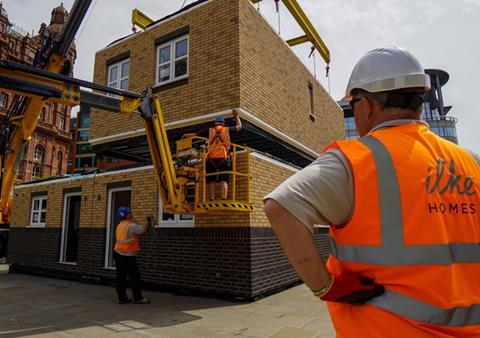Orders down by nearly 10% in final quarter of 2019, ONS data reveals, but output hits record highs
The value of new homes ordered fell by nearly 10% in the final quarter of last year according to official data, despite other evidence suggesting a post-election increase in buyer demand for new properties.

The construction new orders figures published today by the Office of National Statistics showed that the value of public and private housing work tendered in the last quarter of last year fell to £3.4bn, down 8.5% on the quarter from July to September.
The data also showed that the total housing orders for 2019 were 7.6% down, at £14.2bn. This is the first time that the value of new housing orders has fallen beneath £15bn since 2015. The data suggests the value of work for the industry could level out or fall in 2020.
Housebuilders and estate agents have reported strong house sales since the general election in December, although this will not have transferred into new construction orders in time to be reflected in this data.
The ONS also said that construction output data showed these falls in new orders came against a rosy backdrop for the sector, with value of work done in 2019 hitting a record of £42.7bn, up 6% on 2018. The final quarter of the year was also the busiest three months ever recorded, with £10.8bn worth of work carried out.
This rise in output is consistent with government housebuilding figures showing record net housing additions of 241,000 in 2018-19. The Construction Products Association last month forecast housing starts would fall by 2% this year, consistent with the decline in new orders.
Matthew Bench, executive director of growth and partnerships at modular housebuilder Ilke Homes, said the rise in output showed “Christmas came early for the construction sector” at the end of last year.
He added: “It seems the housebuilding industry is finally pulling its socks up and getting on with building the homes our country so desperately needs. Despite ending the decade on a high, the government and industry mustn’t rest on their laurels.”
Tom Slingsby, chief executive of property developer Southern Grove, said the slowing of growth reflected the “political agony of Brexit deadlock that the country has now, fortunately, left behind”.
He added: “The future already looks much brighter with the UK’s outlook being almost unrecognisably optimistic just a month and half on. ”











No comments yet